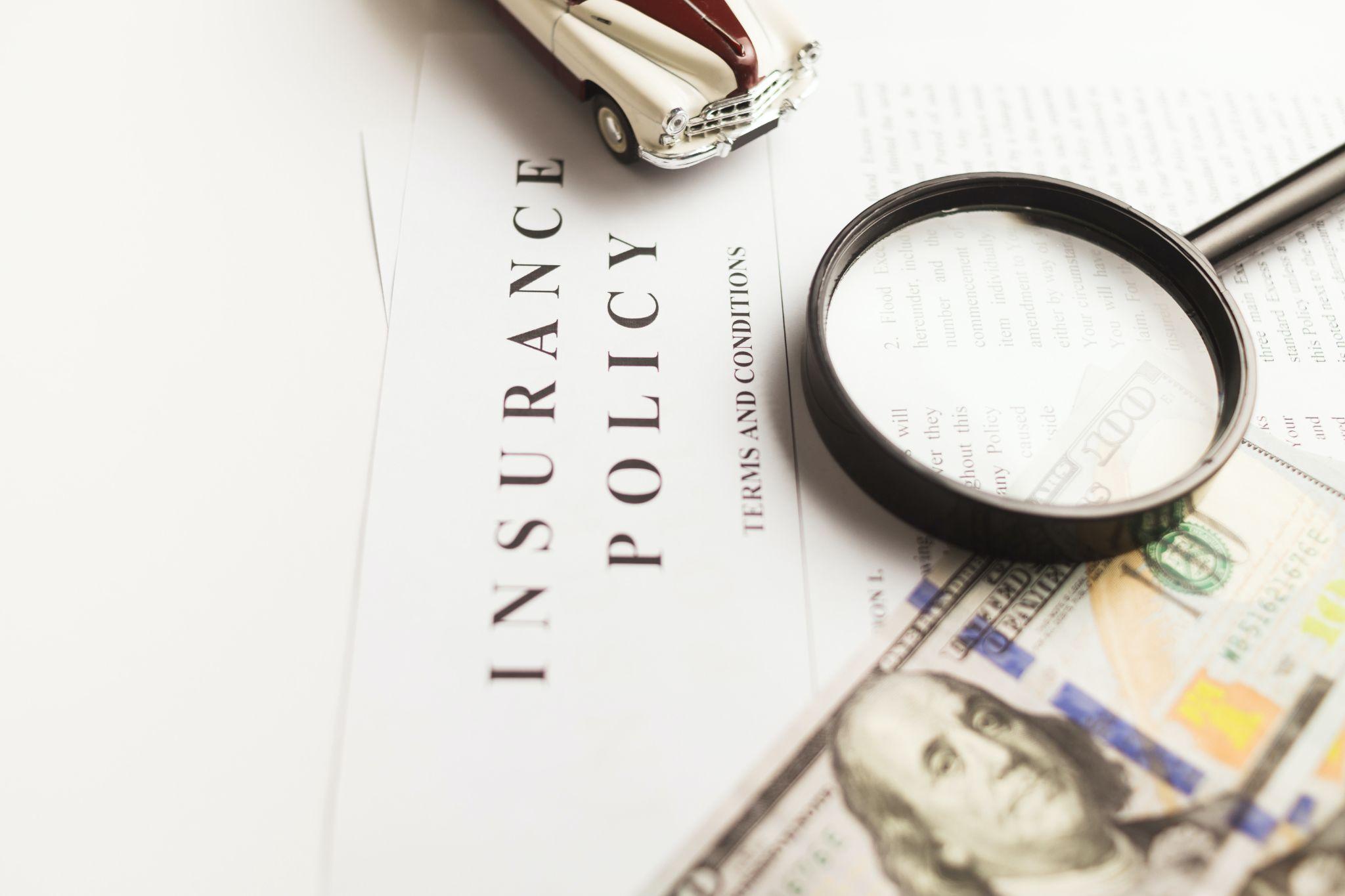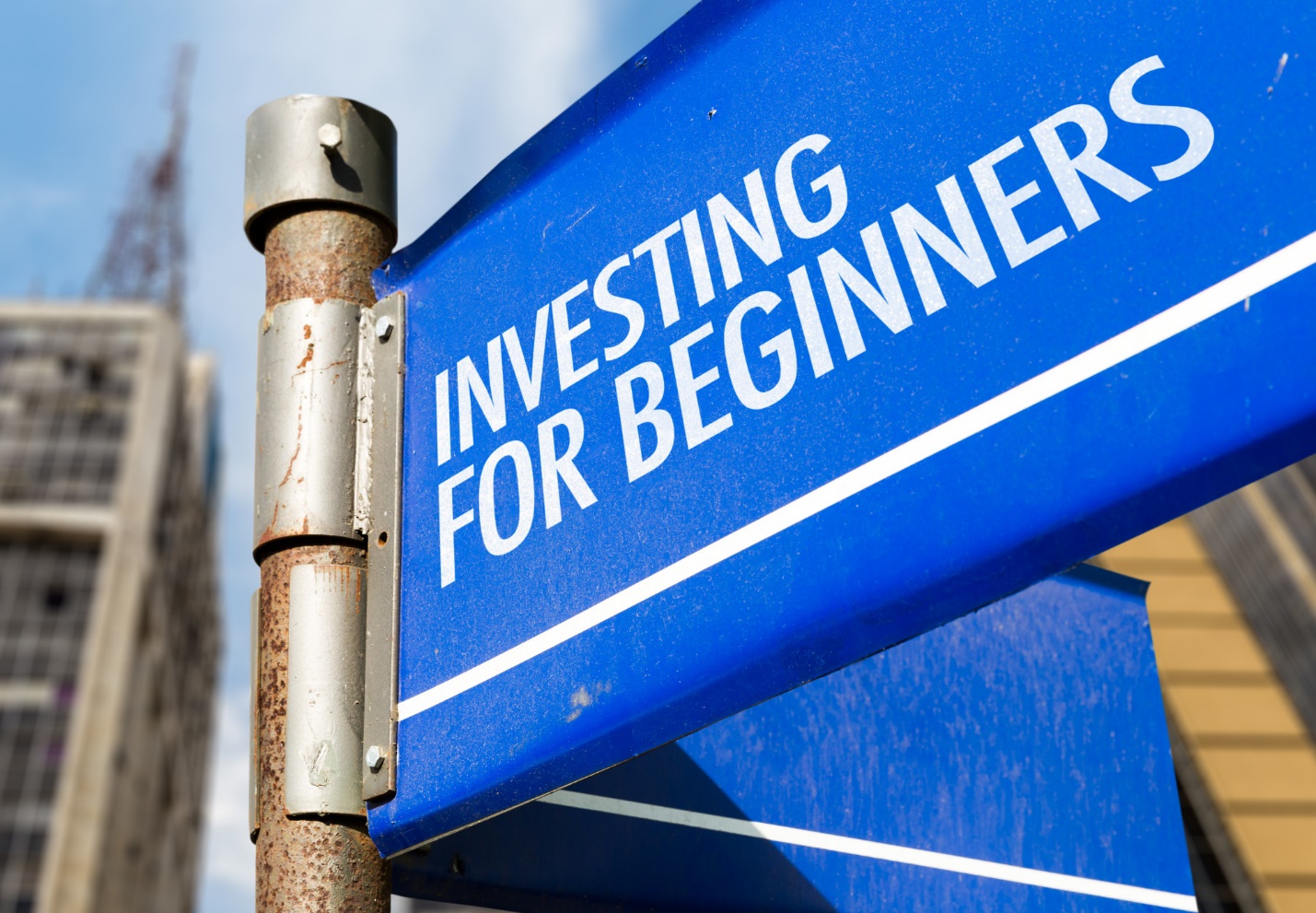- Home
- Money
4 Ways to Lower Your Monthly Bills

With inflation on the rise, if you’re like most people, you’re looking for ways to save money wherever you can. A great place to start is to lower your monthly bills. Reducing your bills can significantly impact your ability to put money aside for things like travel, or saving for retirement.
The great news is that lowering your monthly bills is as simple as implementing a few smart strategies and changing up your lifestyle a little bit. Here are some of the most practical ways to lower your monthly bills, and start saving more money right away.
Reduce Your Energy Consumption
One of the biggest areas of improvement to focus on is your energy bill. Making simple changes like turning off your lights and appliances when not using them is a great place to start. Switch out your light bulbs for more energy-efficient ones, and lower your temperature settings on your thermostat. Even just a few degrees lower or higher can make a substantial impact on your bill over the course of the year . You can also maximize your HVAC’s efficiency if you find that it’s draining a significant amount of energy.
Budget
Sometimes saving money on your bills is as simple as budgeting meticulously. Create a detailed budget that includes all of your incoming and outgoing expenses. Expense tracking is one of the most revealing ways to make better-informed decisions about reducing any unnecessary expenses and charges that you can cut back. Track your spending daily so that you can identify any areas where you can make improvements.
Negotiate With Your Service Providers
From your cell phone company to your utility company, don’t be afraid to negotiate. In many cases these companies may offer loyalty discounts that they don’t always mention up front, yet when you ask about them they may be willing to offer. It’s worth calling and asking if they have any promotions or options available that could help lower your bills.
Eliminate Unnecessary Subscriptions
If you’re like most people, chances are you have a few different subscriptions. From the gym, to streaming services, many of these don’t cost much individually, yet added up throughout the month can cost a significant amount. Ask yourself how much you actually need each one of these subscriptions and cut back wherever you can. For example, if you have a gym membership, and you haven’t used it in several months, it may be time to admit that you’re not ready to commit to an exercise regime just yet. The same goes for your streaming. If you have several different streaming services, consider cutting down to just one for at least a few months.
The Cost of Product Liability Insurance: What to Expect

Product liability insurance is necessary to financially protect a company against any claims or actions that arise as a result of defects or malfunctions in the products. The policy provides adequate coverage for the manufacturers/distributors/wholesalers/retailers/resellers’ liability resulting from product damage sustained by the third party due to lack of product warnings or defects in the product.
No matter what kind of products you deal with, there are plenty of opportunities for things to go wrong. Even the seemingly harmless products might sometimes get your company in legal trouble. Claims are incredibly expensive for defending them.
Australia has the best experts to consult and utilize abundant insurance services online. You can also compare numerous options and buy several policies like general liability policies, and professional indemnity insurance policies online in just a few clicks. When a third party accuses a professional of inflicting a loss as a result of their services or advice, professional indemnity insurance covers both the professional and their firm.
Is Product Liability Insurance Mandatory?
The value of product liability insurance cannot be undermined. While it isn’t mandatory, liability insurance is extremely important because the cost of the legal fees necessary to defend yourself may potentially cost your company tens of thousands of dollars. Companies are more vulnerable to third-party damage claims; thus, with adequate product liability insurance, you can reliably guard against damage.
Factors Affecting the Cost of Product Liability Insurance
The cost of insurance is determined by the type of product/business, manufacturing method, marketing methods, necessary safety measures, and revenue generated. Some of the factors influencing the cost of product liability insurance are listed below.
Risk level – Policy costs will be higher for businesses dealing with high-risk products such as medical devices, pharmaceuticals, and fireworks than for businesses dealing with low-risk products such as household items, stationery, buildings, retail establishments, and so on.
Company size and no. of employees – Another significant aspect affecting the price of the insurance policy is the size, scope, and manpower of the organisation. Large enterprises necessitate higher insurance prices.
Businesses operating in multiple locations or countries will have to pay higher for their product liability insurance coverage as the risk involved is also higher.
Location – Areas involved with theft, burglary, environmental/natural catastrophes, and fire hazards will require high-cost liability insurance. Selecting a locality, free from potential incidents or other environmental impacts have helped businesses to avoid higher premiums.
Cybersecurity – The ransom ware attacks might halt your business operations and create a cyber crisis. It is indeed necessary to restore your business operations in a timely way to limit the cost of a claim. Technology underpins nearly every part of businesses today and hence it is considered one of the vital factors to impact the cost of the product liability policy. The insurers will be provided with experts to work on this on a day-in and day-out basis and will be provided with an early warning system to receive the right responses.
Fire safety – A mandatory factor in assessing the workplace’s fire suppression system, sprinkler system, closest fire hydrant, and proximity of the fire station. This even impacts the entire cost of product liability insurance.
Workplace injuries – Some unavoidable injuries generally occur in industries like warehousing, construction, and many other working areas. The workplace injury claim cost is augmenting every passing year, hence impacting the cost of the policy.
Limit of Liability – A policy with a higher limit will cost more than a product liability policy with a lower limit and it depends on the insurer opting for the type of coverage required.
Prior claims experience – Every business experiences different difficulties and would have claimed more than once. The monthly premium cost of product liability insurance for such insurers is going to be higher than the insurers who have not faced any prior claims.
Product Liability Insurance Policy Online
In today’s ever-changing world, new technologies like online insurance services help tackle risks by easily engaging with risk consultants. Online services have the following advantages.
- 24*7 assistance in claims
- Dedicated relationship manager taking care of service-related queries immediately
- Getting swift responses through calls, emails, video conferences, and even in-person meetings.
- Providing potential plans and customized quotes with in-house product experts
- Enabling considerate add-ons.
A comprehensive product liability insurance is vital to protect your company from any financial downturns. Before selecting any policy, consult your broker to understand the terms and conditions involved. The cost of the insurance will vary depending on the underlying factors and be aware to choose the best.
Personal Protection: 7 Steps to Protecting Yourself from eCommerce Fraud

What is eCommerce fraud? Well, in short, it’s theft from an online store with the intention of personal or financial gain for the perpetrator, regardless of the impact on the retailer. There are many different types of eCommerce fraud, but the crime is not insurmountable. Your online store does not have to fall victim to this type of fraud if you follow the steps outlined below.
1. Don’t Ship to Non-Physical Addresses
Cybercriminals like to use non-physical addresses in place of their actual addresses because it’s obviously difficult to track them down if the authorities don’t have a physical address. You can avoid this pitfall by refusing P.O. boxes and any other addresses that aren’t identifiable on a map. Implementing eCommerce order processing with a fulfillment company can also keep you from shipping to non-physical addresses.
2. Use an Address Verification System
Credit card fraud is a real problem for eCommerce stores. To reduce the risk, you should use an address verification system (AVS) to identify suspicious addresses and block sales to addresses that don’t match.
The verification system checks the address the credit card user inputs against the one stored by the issuing bank. If they do not match, the system either flags the transaction for further investigation or blocks the sale altogether.
3. Conduct Regular Security Audits
We can’t stress enough how important online security is for your eCommerce business. Your customers expect their data to be safe, so you need to ensure it is. Regular security audits will let you identify risks before cyber criminals do. Things to tick off include updating your shopping cart software, ensuring your SSL certificate is current and website PCI-compliant, and checking that you are backing up your store often.
4. Ensure Your Store is PCI-compliant
What is PCI compliance? PCI stands for Payment Card Industry. The PCI Security Standards Council sets these rules, and your store must follow them to ensure your customers’ credit card information is secure. If your website is professionally built and managed, it should automatically be compliant, but it never hurts to check.
5. Require the Card Verification Value with Each Credit or Debit Card Purchase
The three or four-digit numbers on the back of credit and debit cards are called Card Verification Values, or CVVs. The digits are sometimes also called a Card Security Code or CSC. By requiring this information, you ensure the customer has the physical card in their possession, which helps prevent credit card fraud and protects the customer.
6. Only Collect the Customer Data You Need to Complete a Transaction
Cybercriminals can’t steal what you don’t have, so make it a rule to only gather the information you need to collect payment and ship products. Don’t ask for social security numbers, birthdates, or any other sensitive data that hackers might be able to access if your eCommerce store experiences a security breach. As a general rule, if you don’t need a data point, and there’s no legal requirement to obtain it, don’t ask customers to provide it.
7. Set Acceptable Purchasing Limits
Depending on the nature of your business, set daily spending and quantity limits for individual accounts. Should a breach occur, these limits will reduce the losses you incur. If a customer genuinely needs to spend more than the daily limit, provide easy communication channels for them to make such requests.
eCommerce fraud is a considerable concern for online retailers. It’s a constant battle to stay ahead of cybercriminals. However, by following the steps above, you can stay one step ahead and reduce the risk of eCommerce fraud in your online business.
Expert Tips: Roger Scott (WealthPress) Shares How To Weather Uncertain Financial Times

There are a lot of downturns around the globe these days, and they are causing a lot of financial uncertainties. We are fearful about the effects of war, rising inflation, higher interest rates, and an impending recession.
All of this ambiguity causes financial stress. Luckily, Roger Scott, the head trader at WealthPress, is here to advise us on the aspects of our finances that we can manage. Because we never know what can happen, preparing for the unexpected is a good strategy to reduce financial anxiety.
Roger Scott’s expertise as an expert trader and commodity broker at WealthPress has allowed him to establish top-notch trading skills and strategies, some of which he will be sharing with us.
From your pool of knowledge and experience, what impacts do you think uncertain financial times have on businesses?
Uncertainties, especially in finance, bring with them lots of new unknowns. While some businesses might survive, many others fail. Many business owners would be saddled with questions such as what new goods/services should be provided? What should be invested in, and where should it be invested?
What new markets should be explored? This ability to answer these questions correctly would go a long way to relieving the impact of the sudden financial crises.
You have been a finance expert for many years now; what strategies have you used to handle uncertain financial situations?
Over the years, I have come to realize that uncertainty is a major part of the business. And in order to survive, you have to devise a survival strategy and make necessary adjustments to your business. From experience, I have developed trusted strategies that always help me.
Periodically, I assess my net worth to be aware of the figures. Knowing my assets and liabilities are both important as this assists me in figuring out whether I need to pay off debt or save more money.
Also, I spread my investment across several platforms. In this way, if a particular investment is badly affected, I fall back on the others.
Additionally, I always try to have a contingency plan handy.
What common errors do you see business owners making these days that could result in an unpredictable financial predicament?
Covid has impacted the global markets, and many business owners are quick to make and hop on new decisions and ideas, even without test running them. This can result in drastic consequences, significantly if the plans don’t fall through.
Other times, they try to cut costs in production. Although cost reduction may be important in ensuring efficiency, it should be done with caution as it has the potential to degrade output quality. This would, consequently, impair customer satisfaction and unexpected low yield.
As a financial expert, do you predict financial downturns, or are you constantly surprised?
I always foresee financial crises years or months ahead of the situation in itself. There are always indicators, either in new policies, war, economic recessions, and so on, that indicates danger is looming.
Hence, most of the time, financial downturns don’t take me by surprise. It is just a matter of navigating and investing in a challenging market.
Economic recessions usually mean businesses would lose money. How can traders develop and utilize the aforementioned strategies to recoup their losses?
While talking about my strategies, I mentioned having a contingency plan. If you are an investor in the stock market, for instance, you should be able to have a backup plan should things go south.
Secondly, long-term projections should be adopted as they can mitigate against losses. You can have an elaborate five-year or more plan ahead. That way, you would not be taken by surprise during fluctuating business times.
5 Important Investment Tips for Beginners

Over seventy percent of people in the United States regret how they’ve handled their money. If you’re one of them, it’s time to make a move.
Investing is a great way to improve your financial situation, as long as you do it right. Read on to learn the top investment tips for beginners.
1. Diversify Your Investments
It’s important not to put all your eggs in one basket when you’re investing. That way, you won’t have a major meltdown if you lose all your money. Start by making a few smaller investments, so that you can test the waters.
You can even try newer, more experimental investments. For example, Bitcoin cad is really popular right now. Or, you consider NFTs, which stands for non-fungible tokens.
2. Look For Low Fees
Try to avoid fees when you’re investing, wherever possible. After all, the more you save, the higher your return on investment will be.
Index funds, for example, tend to have lower fees than other, similar investment opportunities.
That’s not the only way you can save money while you invest. You should also pay attention to potential tax issues before you invest. Build an investment portfolio that doesn’t require paying large amounts of extra taxes, or put money aside so you won’t be stuck with a major bill at the end of the year.
3. Ask the Professionals
There’s no shame in asking for advice when you’re investing. Financial advisors can ensure you don’t make any beginner’s mistakes when you’re trying to invest. You can ask for advice about beginner investments, ones that are easier to manage and understand than more complicated investments.
Your financial advisor can recommend investments that suit your own lifestyle. If you don’t have a lot of free time, for example, you probably shouldn’t be gambling on the stock market. Stocks require careful management and a daily look at what the stock market is currently doing.
And, you can ask your friends and family for their top investment tips and tricks. They may have lessons they can teach you based on their own past mistakes.
4. Don’t Be Afraid To Pivot
If your current investment strategy isn’t working, you should never hesitate to switch things up. You don’t want to fall victim to the sunk cost fallacy. Be nimble when you’re investing, and always have a backup plan lined up in case you need to change strategies very quickly.
Even the safest of investments can go downhill very quickly, so even something you think is a safe bet requires a solid backup plan and a close eye to watch out for any problems.
5. Set Goals
You’ll want to understand what you’re aiming for when you’re investing — otherwise, you won’t have a real motivation for using different strategies. Set short-term and long-term goals along the way, to keep your eyes on the prize.
Investment Tips for Beginners: Now You Know
With these investment tips for beginners, you’ll be on your way to reaching your financial goals.
Do you need more advice about money and more? Scroll through a few of our other posts on financial issues and other topics.
Tax Return Tips: 5 Questions to Ask Your Accountant This Tax Season

Tax season is a stressful time for many people. Between trying to make sense of the newest tax laws to gathering all the necessary documents, it’s no wonder most people dread this time of year.
This is, perhaps, why nearly 75 million tax returns are filed each year with the help of a qualified tax advisor. These professionals are valuable allies at tax time, helping you set yourself up for the best possible outcome in the current year and beyond.
If you’re working with an accountant this tax season and want to make sure you get excellent mileage from the fee you pay, this article is for you. Below, you will find five important questions to ask your accountant when you sit down to complete your tax return.
1. What is the Best Way to Lodge Your Individual Tax Return?
You have a couple of options when it comes to filing your tax return, but according to the federal government, the best way to lodge your individual tax return is by using reputable tax preparation software and e-filing the return. This method ensures the fewest mistakes and the fastest timeframe for receiving your refund. You can do this with or without the help of an accountant, but doing it with an accountant is a good way to maximize your return and avoid mistakes that may lead to an audit.
2. How Does the Tax Preparation Process Go?
Most accountants will work around your schedule and needs. If you’d rather do your tax return in person, you’ll be able to schedule an in-office appointment. If you feel more comfortable communicating by phone, your tax preparer will be happy to set up a call.
Whichever route you choose, you’ll always be able to contact your accountant with questions or concerns. This is your time, and your tax professional will be happy to accommodate your schedule and preferences.
3. What Information Do You Need to Prepare and File My Tax Return?
Every accountant needs specific information to prepare and file a tax return. These documents may include:
- Identification for you and your family;
- A copy of your most recent tax return to give your accountant an idea of the deductions and credits you qualified for in the past;
- W2s and/or 1099s;
- Proof of expenses if you plan to itemize deductions.
Asking your accountant precisely what they need will minimize the time it takes to get your return done.
4. Can You Help Me Improve My Tax Situation?
Ideally, your tax return would come out to zero – no money owed to you or the government. Of course, this rarely happens, but your tax professional can help you get closer to that sweet spot.
They may suggest changing your withholdings from your paycheck, for starters. They can also fill you in on the way certain circumstances – like selling a house or getting divorced – can affect your tax obligation.
5. How Will My Side Hustle Affect My Taxes?
Whether you took on a pizza delivery job to pay down debt or turned your hobby into a business, any side hustle you do affects your tax situation, especially if it isn’t a traditional job where taxes are withheld automatically.
Your accountant can fill you in on how your side hustle affects your taxes – you’ll likely need to fill out extra forms and pay self-employment taxes, but all of this will be explained, so you’re not blindsided.
Tax season is a complicated and stressful time for most people, but by asking the right questions of your accountant, you can feel better about your financial situation.
The difference between trading CFDs and futures in Sydney
Several critical distinctions exist between Contracts for Difference (CFDs) and futures when trading. We’ll take a look at the main distinctions between CFDs and futures in Sydney, so you can make an informed decision about which product is right for you.
What are CFDs and futures contracts?
If you’re new to forex trading, you may be wondering what CFDs and futures contracts are. Both are financial instruments that allow traders to speculate on the future price of an asset. For example, a futures contract might give the holder the right to buy a certain amount of gold at a set price on a specific date.
Similarly, a CFD might give the holder the right to sell shares in a company at current prices, regardless of whether the share price has risen or fallen by the contract expires. You may use contracts of both types to hedge against potential losses or take advantage of possible price changes.
The benefits of trading CFDs over futures
Many forex traders prefer to trade CFDs for futures trading, as CFDs can be advantageous for many reasons:
- CFDs allow traders to take a position on the price of an asset without incurring the total cost of ownership.
- CFDs offer leverage, meaning that traders can control a more prominent position than they would with their capital.
- CFDs are generally more liquid than futures contracts, making it easier for traders to enter and exit positions.
For these reasons, Sydney Forex traders often find that trading CFDs offers several advantages over futures.
How to trade CFDs
Forex traders looking to trade CFDs can do so through several online brokers. You must compare fees, leverage, and account minimums when choosing a broker. Australian traders will also want to consider the broker’s platform and whether it offers access to global markets.
Once a trader has selected a broker, they will need to open a CFD account and fund it with Australian dollars. Traders can then begin trading CFDs on various asset classes, including stocks, forex, commodities, and indices. Stop-loss orders and take-profit orders are critical risk management tools traders can use to maximise profits.
The risks associated with trading CFDs
Forex traders should be aware of the risks associated with trading CFDs. While CFDs can offer investors the opportunity to make significant profits, they also come with a high risk. Sydney investors considering trading CFDs should be fully aware of the risks involved before making any trades.
One of the most significant risks associated with CFDs is highly leveraged products. It means that investors can potentially lose more money than they have invested. Therefore, it is essential that you only trade with money you can afford to lose.
Another risk is that the Australian Securities and Investments Commission (ASIC) does not regulate CFDs. It means that Australian investors will not have the same level of protection as they would if they were investing in other financial products. Investors who are unsure about this should therefore seek professional advice before making any investments.
The differences between Sydney’s two leading futures exchanges
Sydney has two of the world’s major futures exchanges, the Sydney Futures Exchange (SFE) and the Sydney Futures Exchange Clearing House (SFECH). Both exchanges offer a range of products and services for Australian or Sydney-based forex traders. However, there are some critical differences between the two exchanges.
The SFE is a fully electronic exchange, while the SFECH is a hybrid exchange that offers both electronic and floor-trading facilities. The SFE is also a member of the World Federation of Exchanges, while the SFECH is not.
Another key difference is that the SFE offers trading in a broader range of products than the SFECH. These include interest rate futures, currency futures, equity index futures and options, and commodity futures. The SFECH, on the other hand, offers a narrower range of products, focusing primarily on interest rate futures.
Ultimately, only you know what is best for your portfolio in relation to your risk appetite and investment goals. Therefore, you should do sufficient research and consult with professionals if necessary, and abstain from making hasty decisions.
Top 4 NFT investments in 2022
The world of NFTs has been booming lately, with the prices of some of them reaching astronomical figures. For instance, the Tory Lanez NFT price reached $60 000, selling about one million copies in under a minute.
Although the NFT market is still developing, there are more than enough NFT projects in the market that are expected to attract more interest in 2022. The idea of NFT dates back to 2015, but now there are countless market-related opportunities and use cases.

It would be fair to say that the NFT craze is far from over. In fact, crypto analysts believe that the NFT revolution has just begun and will pave the way for greater blockchain adoption. After all, NFTs offer complete ownership of art to people who ordinarily only the wealthy can own.
The most exciting and engaging NFT projects in 2022 will prioritize the sale of limited and exclusive items. From digital art and art collectibles to trading cards and music, there is a huge attraction in the market.
With that in mind, let’s review the top 4 NFT projects you can invest in 2022.
CryptoPunks
It’s arguably the most famous NFT project you can invest in 2022. It features a massive collection of 10,000 computer-generated punk characters. But each punk has its own characteristics and personality, and the distinction of each character allows you to quantify the value of collectibles. The launch of this NFT project was a huge success. In fact, the CryptoPunk with the highest value was sold for 124,457 Ether, which amounts to $532 million.
Proof of Beauty
It’s another impressive NFT project that documents the history of the ETH blockchain. The concept behind Proof of Beauty is to celebrate and defend the history of the Ethereum blockchain and raise awareness. HASH is the first round in the NFT series of Proof of Beauty. Proof of beauty allows you to convert your blockchain transactions into compelling NFT works of art.
Most notably, Proof of Beauty was the source algorithm that made Jay Z’s purchase of CryptoPunk possible. Simply put, Proof of Beatty integrates transactions and transforms them into beautiful shapes,textures,and colour combinations.
Virtual Reality Land
VRL is a unique NFT project. When it comes to NFT go investing, Decentraland is at the top of the chain. On Decentraland, users can monetize any land through real estate development. The potential of VRL continues to grow in the NFT world. In fact, many investors have created amusement parks, museums and NFT casinos to monetize land. On the other hand, VRL also functions as a speculative investment that investors can later sell.
Flow
Launched in 2020, Flow has become a playground in the NFT market. Flow has become a hub for creating a new generation of games, apps, and digital collectibles. Flow runs on a single layer of blockchain technology which has been the basis of many mainstream blockchain applications. From Top Shot to Dapper Wallet, Flow offers its developers the ability to create and trade a particular NFT.
5 Tips to Buy Clothes Online and Save Money
If you want to save money on your clothes, you might consider online shopping. This will help you find cheaper clothes. Furthermore, you will have a wider selection of clothing than if you went to a brick-and-mortar store. The internet is full of clothing retailers, so you can easily compare prices and find the right outfit for you. But what should you look out for when buying clothes online? Read this article to know more about what to look for when shopping online.

Benefits of Online Clothing:
The biggest benefit of online clothing shopping is the wide variety of selections. You can find anything you want instantly and you don’t have to spend your time driving around town. You can simply browse through websites to find the right items. The convenience factor is also a big plus. You can buy clothes from different brands. Some of these companies even have return policies. If you want to buy clothes online, always read their return policy and apply express promo code. It is important to know your size before you purchase anything online.
Check Prices and Shipping:
When buying clothes online, check out the prices and shipping. Some online stores offer free shipping after you spend a certain amount of money. Buying clothes online also means that you can compare different retailers’ prices. Various price comparison websites let you compare prices instantly. Another benefit of buying clothes online is that you can read product reviews to find out whether a product is worth the purchase. This can help you choose the perfect item. You’ll also be able to see if other shoppers have reviewed the product, so you’ll know what to look for.
Affordability:
The largest advantage of online shopping is its affordability. Unlike brick and mortar stores, online merchants don’t need to pay for rent, utilities, and other expenses. That means they can pass the savings on to you. And when you purchase clothes online, you can make the purchase even more affordable. With online shopping of clothes, you can even customize your order with specific styles, brands, and colors. You can even use discounts and coupons.
Convenient and Time Saving:
Shopping online is convenient and time-saving. You don’t have to go out of your way to shop for clothes. You can place your order from your home, even while you’re watching TV or reading a book. Moreover, you’ll never have to worry about the availability of clothes. If you buy online, you can shop at any time and in any location. The internet is an excellent choice for people who want to save money.
Check Reviews:
When purchasing clothes online, it’s important to check the reviews. This will help you to decide whether a product is worth it. Several websites offer reviews, which are helpful for comparing prices and quality. Aside from these, the review site should have pictures of customers wearing the clothes. In addition to reading reviews, you can also check the shipping charges. And remember to check the return policy before making your purchase. If you’re not sure if the product is available in the store, you can also ask for a refund.
There are many benefits to buying clothes online. Besides the fact that it’s easier to find bargains, you’ll have better access to a wider selection of products. When it comes to shopping for clothes online, you can also save money. You can also buy clothing for your loved ones and yourself at a lower price. You’ll be able to save on your clothes and avoid the hassles of shopping. You’ll be able to purchase more items for yourself or for your loved ones and you’ll be able to save money.
A Startup Checklist Every Entrepreneur Should Follow – Reddy Kancharla
Starting a business is hard. There are so many things to take care of in so little time, which is why it’s important to plan ahead in order to launch on the right foot. Few startups manage to do that, but when they do – they succeed immensely, according to experts like Reddy Kancharla and others.
Here is a startup checklist all entrepreneurs should follow before establishing their business operations:
1) Make sure you have a unique selling point (USP)
The USP is the single most important factor in deciding your success as an entrepreneur. If you don’t have one, it’s time to take another look at your business plan. No idea is perfect, but there are ways to make yours stand out, like targeting a specific industry or customer demographic.
2) Marketing is a must
The age of effective yet scaled marketing campaigns is long gone. If you want people to buy your product or pay attention to your startup, you have to win them over through collaborative efforts on social media and other platforms. This also includes paid ads on Google and Facebook – so save up for it.
3) Instead of going solo…
No man (or woman) is an island when running a business, contrary to popular belief. Going at it alone seems like the best idea when starting, mainly because there’s no one else in control sharing their opinions and ideas. Hiring employees will help you focus more on the core aspects of your business while delegating tasks to meet your overall business goals.
4) …create a team
Starting out with just one person is okay, but having at least two is ideal in most cases. It’s always good to have an extra set of hands or another point of view on the table when trying to solve difficult problems or deal with legal issues – especially for new entrepreneurs who are likely eager to please everyone, which can lead them down the wrong path more often than not.
5) Determine if you want investors…
Perhaps the biggest decision every startup entrepreneur must make before starting is whether or not they need outside investors for their business idea. It might seem like the best idea to get things off the ground, but it also means giving up the majority of your company to someone else who might not have your best interests at heart.
6) …and how much equity you’re willing to give away
Investors won’t work for free, so it’s important that you establish a fair rate in which they will be compensated before reaching out. Saving up for this part is helpful when it comes time to negotiate with investors – otherwise, you’ll end up giving away too much of your company before everything is said and done.
7) Are you ready to work extra hard?
If you want to succeed in business, there isn’t an easy way around the long hours and grueling days that come with it; especially when starting on your own without any help. It’s important to remember how much you’ve invested in your business and the countless hours of work it took to get everything off the ground – that alone will give you all the motivation needed to succeed.












